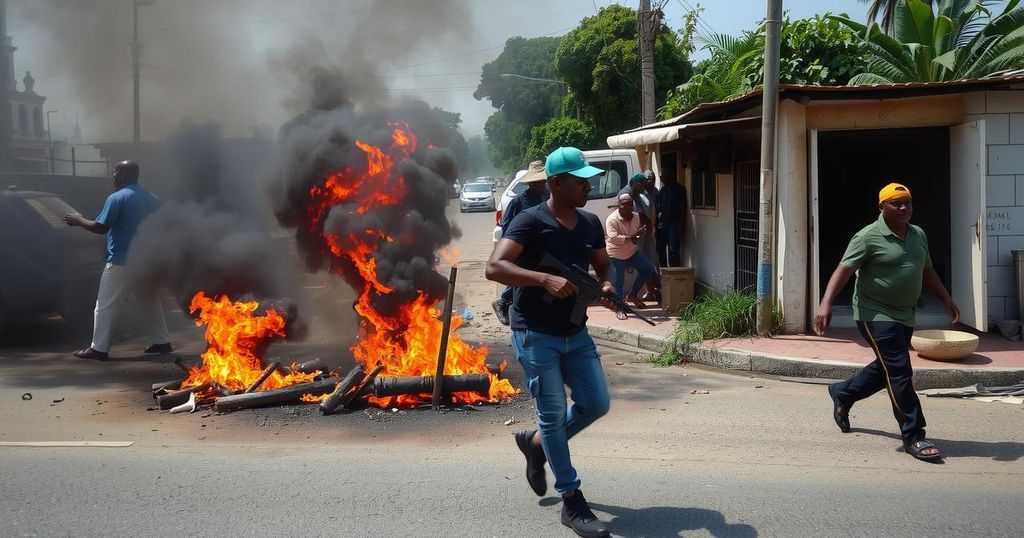Approximately 125 people have died in Mozambique over three days of violent protests ignited by dissatisfaction with the presidential election results. Daniel Chapo of the Frelimo party was declared the winner, but allegations of electoral fraud have prompted significant unrest, clashes, and arrests. NGO Plataforma Decide reports total fatalities from the unrest at 252 since October. Political tensions remain high as opposition leaders challenge the legitimacy of the elections.
In recent days, Mozambique has witnessed a tragic surge in violence following the presidential election results, with approximately 125 fatalities reported over three days. The protests erupted in response to the announcement that Daniel Chapo of the long-ruling Frelimo party secured victory with 65.17% of the vote. The international community has expressed concerns over potential irregularities in the October 9 elections. As the unrest escalated, clashes between protestors and police ensued, leading to looting and arson in various cities.
The NGO Plataforma Decide highlighted the devastating impact of the violence, indicating that the total death toll has reached 252 since the protests began in October. The most affected areas include the vicinity of the capital, Maputo, across several cities, particularly Nampula and Beira. Reports detail the government confirming the initial death toll of 21 due to rioting, alongside a mass jailbreak near Maputo where 33 inmates lost their lives during the attempted escape.
Amid the chaos, significant arrests have occurred, totaling over 4,000 individuals since October, with 137 apprehensions in just the latest three-day period. Venancio Mondlane, the primary opposition leader now in exile, has accused the government of staging the unrest to justify a state of emergency aimed at suppressing dissent. Although some roadblocks were removed, many remain, severely restricting transportation and leading to the suspension of public transit services.
The ongoing violence in Mozambique stems from deep-seated political tensions, particularly relating to the recent presidential elections held on October 9. Following the election, which saw the re-election of the Frelimo party amidst allegations of electoral fraud, significant protests erupted, primarily led by the opposition. Historical context suggests that Frelimo has held power since the country gained independence in 1975, which has fostered a climate of political unrest and dissatisfaction among opposition groups. The current situation is exacerbated by the government’s response to protests, with heavy police presence and reports of violent confrontations that have led to significant loss of life and mass incarcerations.
The recent escalation of violence in Mozambique highlights the precarious political landscape following the disputed presidential elections. With over 125 lives claimed in just three days of unrest and a rising total of fatalities since October, the situation demands urgent attention from both national and international authorities. As the opposition calls for accountability and transparency, the potential for further violence looms, emphasizing the need for dialogue and resolution in the interest of public safety and stability.
Original Source: www.barrons.com






